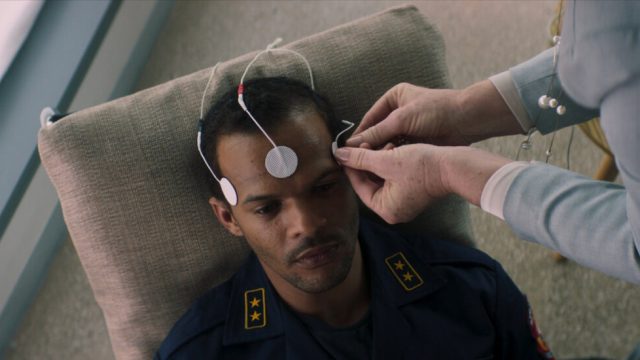This Week, We’re Trying Not to Get Bent Out of Shape About:
- a low theatrical gross
- Wakanda Forever casting
- family of the famous
- recovery on screen
- a departed star
- pro wrestling!
Thanks to the always chill scb0212 for contributing this week. Send articles throughout the next week to ploughmanplods [at] gmail, post articles from the past week below for discussion and Have a Happy Friday!
At The Reveal, Keith Phipps checks out the lowest grossing theatrical release of the year, selling exactly 37 tickets in its run:
What leads to a movie enticing so few? Indemnity opened on four screens on February 11, a week dominated by the new releases Death on the Nile and Marry Me. But, to be fair, they didn’t have to work that hard to dominate the charts. February is traditionally a slow time at the movies and 2022 was no exception. It was distributed by Magnet Releasing, which has a long history of putting out compelling international genre films like The Host and 13 Assassins. But it’s also put out a fair number of space-filling international genre programmers and nothing about Indemnity, from its title to its trailer, suggested it would offer viewers anything they hadn’t seen before.
Indiewire’s Bill Desowitz and Jim Hemphill investigates the ties between Speilberg’s past and his latest film The Fablemans with his longtime collaborators:
The tension between family and art is a key theme of “The Fabelmans,” most clearly articulated in the scene where Judd Hirsch’s character tells Sammy (the movie’s fictional stand-in for young Spielberg) that the conflict will tear him apart. “You have to choose between the civilian life and the movies,” said Kaminski. “That’s a theme that is very much in my life and the thing that identify with the most in the movie. Perhaps this is also the reason Steven and I have such a good collaboration. He’s less transparent about his choice and I’m more transparent. I really found life in making movies; I found family, I found happiness, I found a form of expression. For me making movies is being alive, as it is for him. But the audience never knew that until this particular movie.”
Vox‘s Izzie Ramierez looks at the knotty debates about colorism and casting in Latino countries in the wake of Black Panther: Wakanda Forever:
The [Mexican news channel] ADN40 clip is now going viral on TikTok, where creators are highlighting how, within Latin media, lighter-skinned (especially white) actors are cast at much higher rates than darker ones. If you grew up on telenovelas, you would know that the lead characters were almost always green- or blue-eyed, and anyone who was a “moreno” would be relegated to goofy sidekicks or nosy maids. American entertainment, too, comes with its own typecasting of Latinos. In the grand scheme of things, fretting about representation in corporate superhero movies might seem like misplaced attention. But colorism is a nasty disease within Latino communities, in the US and elsewhere. It’s a multilayered problem that for so long has been pushed to the side or ignored. We have a chance to hash that out now.
For Bright Wall/Dark Room, Julia Sirmons talks about stories of addiction and recovery on screen:
As a recovering addict, it’s a complicated thing, this desire to “see” myself on the screen. Addiction affects so many; there are so many variations to the basic narrative, dependent on age, race, gender, region, and drug of choice. Even now, I’m torn between the lure of respectability politics (“show them we can lead productive lives!”) and a suspicion of bows that are too neatly tied (“no shiny, happy people!”). But the more I think about it, and the longer I stay around, what I want most are movies and shows that just give addicts some love. I want us to be seen as lovable: capable, resilient, and inherently worthy, regardless of whether we’re using. I’m not looking for the exact story of how I drank or how I stopped, but rather to feel a soul-deep kinship with a fellow traveler, to see the strange little stations of the cross, a journey toward life on life’s terms that, even if you’re not a believer, is undoubtedly marked by a kind of broken, inexplicable grace.
At Polygon, Clint Worthington eulogizes Jason David Frank, a fan favorite in the Power Rangers world:
As an actor, it’s safe to say Frank was no great shakes (not that the show ever asked much of its performers). But there was an intangible charisma to his work that feels akin to the more adult-oriented action stars of his time: genial, if a bit wooden, posing and grinding through his lines with game commitment. He wasn’t too far removed from Jean-Claude Van Damme, honestly, a lithe martial artist who had just enough star presence to carry his scenes in between roundhouse kicks. He was the PG alternative to the Arnolds and Slys of his day, explicitly marketed to children without losing the fighting ferocity of his big-screen peers.
We are shocked – shocked! – to learn that political-themed pro wrestling personas are facing more out-of-control crowd behavior at bouts:
“The crowd has taken on a more violent approach towards me,” said Harnsberger, who plays the Progressive Liberal in the ring. “I had rocks thrown at me. A lady pulled out a lighter, tried to light my trunks on fire while they are on me. And had someone else pull out a switchblade.”

